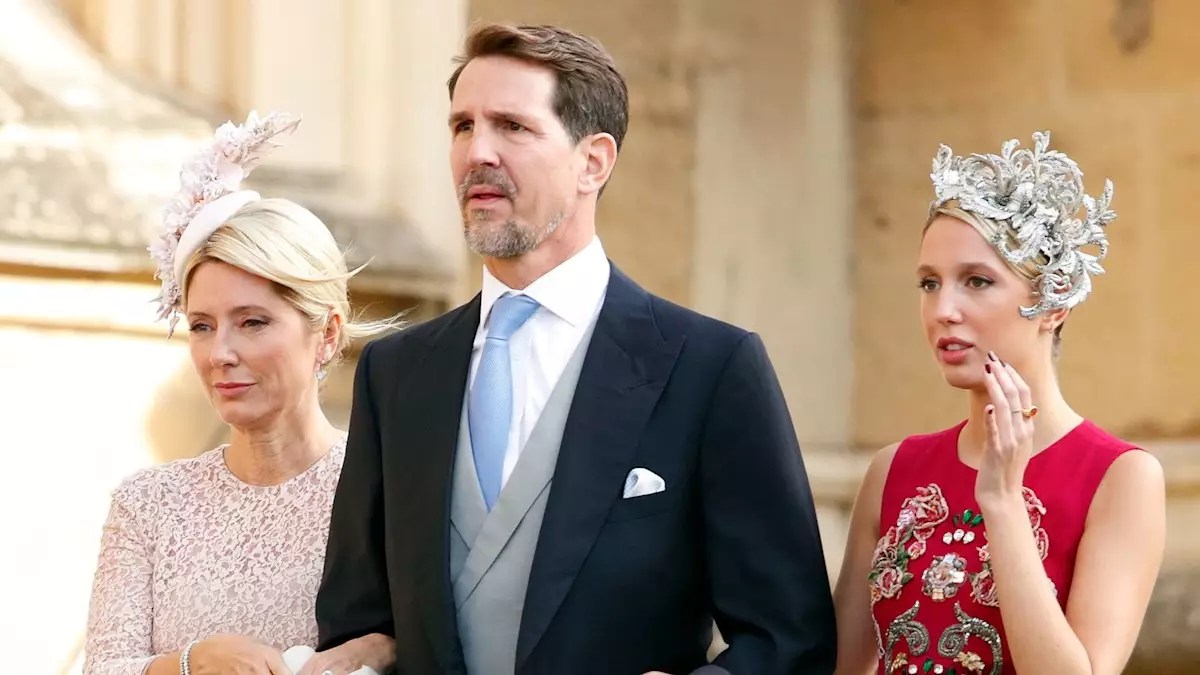The Greek royal family is making significant moves to reclaim their citizenship in Greece—a nation that long ago severed its ties with monarchy. This endeavor marks a pivotal moment for the family, who have now openly acknowledged the republic’s status over the monarchy, an institution that was officially abolished more than fifty years ago.
The journey of the Greek royal family is steeped in a rich yet tumultuous history. King Constantine II, the last monarch to rule Greece, was on the throne from 1964 until 1973, a period when the political landscape was fraught with instability and strife. His reign came to an abrupt end when he attempted to orchestrate a counter-coup against a military junta that had seized control and dissolved the monarchy. This act not only led to his exile but also resulted in the formal abolishment of the monarchy in 1973, leading to a long-standing disconnect between the royal family and their homeland.
In 1994, a decree stripped the family of their Greek citizenship, an act that solidified their status as exiles. The royal family’s most significant breach with Greek society occurred when King Constantine refused to relinquish his children’s claims to his title, a decision that ultimately cost them their citizenship rights. Such historical intricacies have left an indelible mark on the relationship between the royals and the Greek populace, a situation that the current effort for citizenship seeks to mend.
The recent actions taken by Greek royals, particularly the formal declaration that acknowledges Greece as a republic, signal a shift in perspective. This move aims to ease the historical tensions associated with their past. On a recent Thursday, several members of the royal family reportedly signed documents asserting their new surname, ‘de Grece’—literally translated to ‘of Greece’ in French. This symbolic act represents not merely a modification in nomenclature but a re-establishment of ties to their homeland.
Despite their strong desire to regain citizenship, the quest remains at a crossroads as they currently await a governmental decision. For the family’s application for Greek identity cards and passports to proceed, the declaration must first be published in the official government gazette. The efforts to revive their nationality include all five of Constantine’s children—Crown Prince Pavlos, Princess Alexia, Prince Nikolaos, Princess Theodora, and Prince Philippos. Though other members, believed to be the grandchildren of Constantine, are involved, their names have not yet been disclosed.
Athanasios Balerpas, an official from the Interior Ministry, commented on the evolving situation, suggesting that this move resolves a “historically pending matter.” His statement resonates with the notion that rather than dwelling on a divisive past, both the royal family and the Greek populace should embrace a future filled with potential unification. The acknowledgment of Greece’s republican status is a significant step away from past grievances, allowing both sides to hope for a harmonious relationship moving forward.
King Constantine’s return to Greece in 2013 before his passing on January 10, 2023, sparked renewed interest in the legacy of the monarchy. His long exile was marked by his time in London, where he maintained friendships with various royals, including King Charles. Despite his departure from the political scene, Constantine’s later years revealed a softening of attitudes toward the royal family, as they began participating in public events and family gatherings back in Greece.
The royal family’s recent celebrations, particularly Princess Theodora’s wedding to Matthew Kumar, signify a new chapter in their lives, symbolizing the blend of tradition and modernity. Their nuptials, delayed twice due to the pandemic and the grieving period after Constantine’s passing, showcased a resurgence of royal visibility and engagement with the public. The joy shared publicly strengthened the bond between the family and the people who had once looked upon them with a blend of nostalgia and ambivalence.
As Crown Prince Pavlos actively engaged with the crowds during Theodora’s wedding, the essence of community became palpable. It illustrates the potential for reconciliation between the royal heritage and a modern democratic state. The restored citizenship could serve not only as a personal reclaiming for the family but also as an emblem of healing and future collaboration between Greece and its royal past.
The Greek royal family stands on the brink of revisiting their heritage while embracing the current republican framework. Their quest for citizenship promises to bridge a historical gap—a meaningful endeavor highlighting the complexities of identity, belonging, and national pride.







Leave a Reply